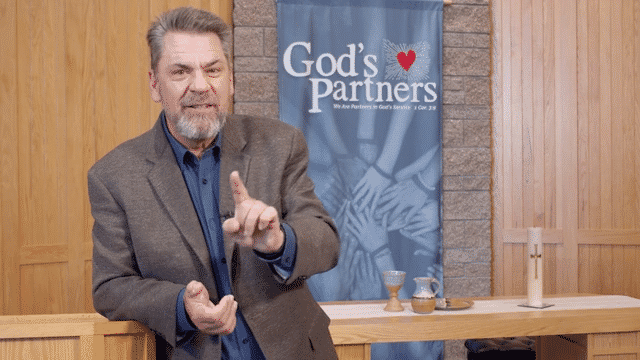Feb 20th: Forgive – Confession, with Rev. Dr. Steven Koski.
Rev. Dr. Steven Koski
Other Articles in:
Feb 20th: Forgive – Confession, with Rev. Dr. Steven Koski.
Let me begin with a Disclaimer. Forgiveness is a whole lot harder than any sermon makes it out to be. Forgiveness grounded in God’s unconditional love of maybe the most challenging and most important teaching of our Christian faith. Do you remember seven years ago when Dylan Ruff killed nine Church members who had welcomed him into their Bible study in Charleston, South Carolina? At Dylan Roof’s trial, the family members of the shooting victims looked directly at Dylann Roof through their tear stained eyes.
And one after another, they begged him to give his heart to God. And they said, we forgive you. Now. Sister Joan Chittister wrote, It was not the violence that stunned does. Sadly, such violence has become the norm.
But what stunned people is that the families of those killed simply refused to hate what had hurt them. Unspeakable pain and grief were present, but it was the absence of hate that left us baffled. In a world overwhelmed by evil, these families demonstrated a forgiveness that overwhelms evil. It was the Christianity we profess, but which they practiced that left us stunt. Desmond Tutu fought the brutality of apartheid for most of his life.
And when apartheid ended, Desmond Tutu recognized healing and reconciliation was only beginning. And he said, There is no future without forgiveness. An eye for an eye makes the whole world blind with hatred. The cycle of hate, anger, vengeance needs to be broken. And what’s true on a global and political scale is just as true on a personal scale.
I’ve watched too many lives, too many lives eaten away by the acid of Unforgiven hurts, holding on to anger and hate. Refusing to forgive is like drinking rat poison yourself and expecting the rat to die. We’re continuing our worship series on the prayer Jesus taught the Lord’s Prayer, suggesting it’s far more than a prayer we recite and worship. Jesus is teaching an orientation of the heart, a way of living in the world and today’s focus Forgive us our debts as we forgive our debtors.
Forgiveness Forgiveness is tricky. There’s often the criticism that forgiveness fails to take seriously the tragedy, the pain that the suffering caused by others. I mean, we’ve all heard you can’t forgive. You can’t let them get away with that. Some argue forgiveness trivializes.
The pain that has been inflicted is a betrayal of those who’ve been harmed. There’s a beautiful story of a six year old boy whose mother asked him to stop running through the house because he might stumble and fall and hurt himself or break something. So of course, he ran and stumbled and fell and broke a base. His father saw it all happen, picked him up, dusted them off and said, don’t worry about it. It’s just a base.
His mother, however, knelt down and gathered up the shattered pieces and said softly, It wasn’t just a base. It was my favorite base. My mother gave it to me. Her mother gave it to her and I looked forward to giving it to my children. And she wept.
And the little boy wept and the mother took him in her arms and hugged him and he hugged her back. Now, who forgave here? The father or the mother?
Forgiveness confronts the pain and reality of the harm caused and decides to break the cycle of violence and vengeance, bitterness and resentment, decides to be free of it. The word forgiveness literally means to be released, to be released from what might bind our hearts to return to what our lives are intended for, for giving love.
Jesus taught his followers about forgiveness. Once, Peter, I love Peter. Once, Peter thought he was being pretty magnanimous when he asked Jesus Teacher, how many times do I forgive someone who’s hurt me seven times? Now, Peter had a reason for phrasing it that way. In the Jewish tradition, the teaching was that you should forgive someone three times.
So seven times seemed pretty generous to Peter. And yet Jesus startled him when he said, Seven, hardly try 70 times seven. The number wasn’t to be taken literally, but meant to forgive an infinite number of times for Jesus to love, to forgive. And Jesus didn’t simply teach about forgiveness. He modeled forgiveness with his own life.
We believe Jesus showed us what God’s love looks like. And perhaps the clearest expression of this love is Jesus hanging on a cross, his strength fading, the life literally bleeding out from him, looking down, watching all of his friends run away, the authorities mocking and taunting him, the soldiers throwing dice for what was left of his garments. He spoke and the Bible says he didn’t say, you’re going to burn in hell for this. You’ll get yours one day you’ll be sorry. I hate you.
He didn’t curse.
The Bible says he looked into the eyes of those who hammered the nails into his hands and said, Father, forgive them, for they know not what they do.
Father forgive.
This is what love looks like when it stares evil in the face. God doesn’t parcel out forgiveness like teaspoons of sugar. God is forgiveness.
And if God is forgiveness and we bear the image of the divine, what does that mean for the way we are called to live and love in this wounded, angry, violent world that is addicted to living like a clenched fist?
Forgiveness is the courage to stare evil in the face, the courage to peace the pain that has been inflicted and choose to be released from the hole it has on our Earth so that a new story can be told. Forgiveness is Grace made only possible by Grace.
February is Black History Month. Today, I want to honor Ruby Bridges. At just six years old, she was the first black child to desegregated Allwhite Elementary School in New Orleans. She was just six when federal marshals had to escort her as she walked by loud, hateful, violent protesters. This happened on November 14, 1960.
Ruby Bridges is still alive today and is a civil rights activist in New Orleans. Right now, there is legislation being considered in at least 15 States seeking to limit how teachers talk about race and racism. There’s a new law already passed in Tennessee that prohibits public schools from teaching any curriculum that might make students feel guilty or uncomfortable. Austin Shenning Brown said the work of anti racism is being willing to face and acknowledge our collective history of being horrible human beings so that we can learn to become better human beings, so that we might write a new story for humanity where human beings treat one another better.
Amazingly, one of the books among the books that one Tennessee school district is considering banning is called Ruby Bridges Goes to School, written by Ruby Bridges herself. And the argument for banning this book States that the mention of a large crowd of angry white people who didn’t want black children in a white school too harshly delineated between black and white people, and that the book didn’t offer redemption at its end.
So some are literally trying to throw Ruby Bridges out of public school again. The people who threw rocks at Ruby Bridges for trying to go to school.
Maybe the redemption they’re talking about hasn’t arrived yet because of our unwillingness to face uncomfortable truth and our unwillingness to face the pain and ugliness of the past so that the cycle of violence can be broken and evil can be overcome.
Pain that is not faced, healed, transformed, just keeps getting passed on from generation to generation.
Maybe that’s why Jesus taught us to pray, forgive us our debts as we forgive, forgive our debtors, forgive us, forgive our collective sin, forgiveness as being willing to confront the realities of our collective sin so that we can break the cycle and be free of it.
Can we really be released from the sins of our past that continue to be repeated in the present if we’re not willing to sit in the discomfort of owning our past?
Some say, Well, I wasn’t there in 1960. It’s not my fault.
It may not be your fault, but healing is our collective responsibility, and healing begins with forgive us.
So rather than ban Ruby Bridges, I want to honor her this morning and invite her to be our teacher. Ruby went to school accompanied by federal marshals as she walked through a hostile crowd calling her names, throwing things at her. She was six.
Robert Coles was a psychiatrist at a nearby Air Force base, and he was asked to help Ruby handle the stress. And at one point, there was concern that Ruby stopped eating. She would only eat potato chips out of a new bag, and it was Cole’s who discovered hostile parents threatened to poison her food, so she was scared to eat anything else. One day, Ruby’s teacher called Coles because she was concerned that Ruby was standing by the window staring at the angry crowd talking to herself.
Ruby said, I wasn’t talking to myself. I was praying. I was looking at the hateful crowd and praying.
Praying God would forgive them for they didn’t know what they were doing.
Cole’s was stunned and told Ruby’s mom what Ruby had said And Ruby’s mom smiled and said, yeah, my baby knows that story. Ruby knows Jesus in her heart.
Ruby never broke under all that pressure. What did begin to break was a racist system. Before the year’s end, the white students returned. The next year, more black students arrived.
I think of the sacrifice and the courage the amazing courage of Ruby bridges, six years old, who stared evil in the peace with a heart of forgiveness because she was taught there is something stronger than hate.
Her history is our history remembering and owning that history every ugly, painful part of it will keep us from repeating it.
There is no future without forgiveness. Forgiveness doesn’t ignore, deny trivialize the realities or the pain inflicted in the past.
Forgiveness releases us frees us to live a different future. To break the cycle to begin writing a different story.
Rose Simmons father, Reverend Daniel Simmons, was shot and killed by Dylan roof.
Rose looked him in the eyes at the trial and said, our hearts are broken our pain is deep but our hearts have no room for hate we will not let hate win.
We forgive you. I forgive you she was later asked how could she possibly forgive?
And she said only with God’s help only with Grace forgiveness is Grace only made possible by Grace in a world overwhelmed by evil may we be given the Grace to overwhelm evil with forgiveness and love as we forgive may it be so you.


